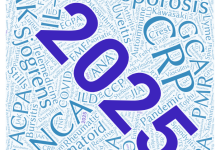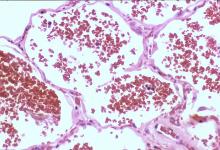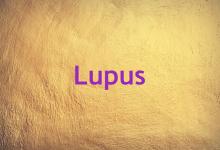New insights into the impact of pegloticase in chronic refractory gout Save
Pegloticase is indicated for treatment of patients with refractory gout. One major issue hampering the comfort levels of rheumatologists to use this agent is the boxed warning in the package insert regarding the documentation of anaphylaxis with the infusions. It is well known that treatment with pegloticase is associated with the development of anti-drug antibodies, which are believed to belie these reactions.
Abstract THU0438 by Drs. Calabrese, Kavanaugh, Yeo, and Lipsky is a study taking a deep dive into all the infusion reactions encountered during the pegloticase trials where each reaction was adjudicated post hoc and the relationship to whether the patients continued to have their uric acid suppressed (a surrogate of lack of antidrug antibodies) or whether they were failing (a surrogate for the presence of anti-drug antibodies) was explored. The NIAID/FAAN criteria were used to classify infusion reactions.
The bottom and surprising line is that in the cohort receiving pegloticase q 2 weeks (as recommended in the PI) and who maintained uric acid suppression (i.e., the way we do in clinical practice) the rate of infusion reactions of any kind was 0.5% or 1 in 200 infusions. Furthermore, in this group there were no cases of anaphylaxis.
Lastly, among the 6 cases of ‘anaphylaxis’ among the over 1600 infusions none were fatal or even serious (i.e., requiring advanced support) and 3 of the patients stayed in the trial. It appears that when pegloticase is used correctly it has an excellent safety profile and these data should be reassuring.









If you are a health practitioner, you may Login/Register to comment.
Due to the nature of these comment forums, only health practitioners are allowed to comment at this time.